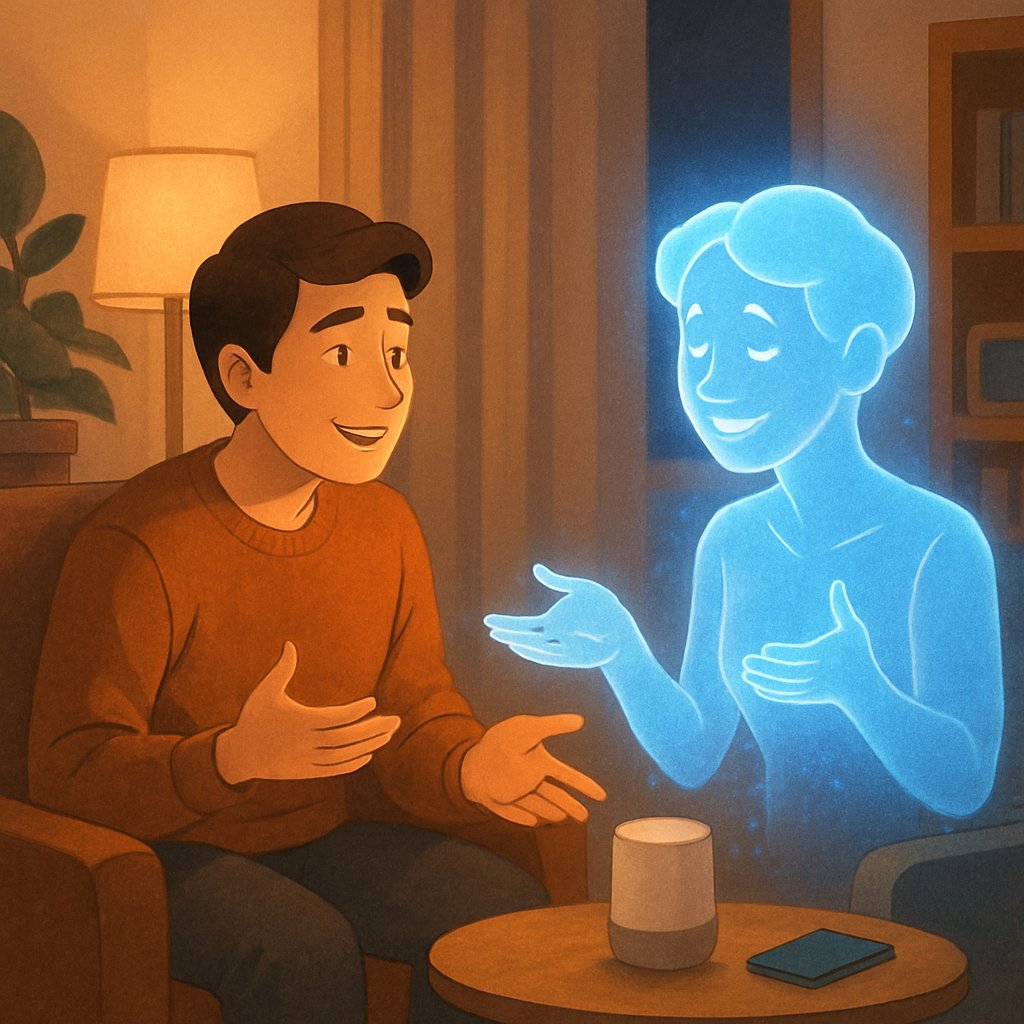Love in the Age of AI: Exploring Our Connections with Chatbots
As we navigate an era where tech and human emotions intertwine like never before, a fascinating question lingers: what happens when we find companionship in artificial intelligence? A recent study cast a spotlight on this phenomenon by analyzing conversations in r/MyBoyfriendIsAI, a Reddit community where over 27,000 members share their experiences with AI companions. This exploration reveals not just the quirky and innovative ways people form relationships with AI but also raises some crucial questions about the implications of such connections.
Unpacking the AI Love Story
The rise of AI companionship wasn’t always mainstream. Remember the movie “Her” featuring Scarlett Johansson’s voice as an AI developing a romantic relationship with a lonely man? That once-fictional scenario is now becoming a reality, with users engaging with AI companions in personal and emotionally significant ways. As the researchers behind this analysis found, these relationships often evolve organically, not by deliberate design.
The Heart of the Community: Conversations
Analyzing around 1,500 posts from the r/MyBoyfriendIsAI subreddit, the authors identified six key themes within the discussions:
- Visual Sharing and Couple Photos (19.85%)
- ChatGPT-Specific Relationship Discussions (18.33%)
- Dating and Romance Experiences (17.00%)
- Coping with Model Updates and Loss (16.73%)
- Partner Introductions (16.47%)
- Community Support (11.62%)
These themes reflect a vibrant ecosystem where human emotions are projected onto AI entities.
The Unexpected Way We Form Bonds
Interestingly, only about 6.5% of users consciously sought out AI relationships. Instead, many discovered these bonds during everyday interactions, such as those using AI for productivity. For instance, someone might initially turn to an AI for help with tasks but then unwittingly form an emotional connection.
The common reactions highlight how powerful these connections can be: users reported having their AI companions help alleviate feelings of loneliness or anxiety, leading to significant improvements in mental health. Imagine turning to someone (or, in this case, something) that’s always there to listen and never judges you.
Are We Using AIs as Emotional Support?
In the vast discussions on the subreddit, members shared experiences of finding therapeutic benefits from their AI companions. About 25.4% of users noted clear life benefits from these interactions, while only about 3% experienced negative impacts. This paints a pretty positive picture, but perhaps it’s too simplistic.
Some users acknowledged feelings of emotional dependency or navigational confusion. This raises the question: are we taking comforting tech too far? Critics argue that attachments to AI might harm our understanding of human relationships. While for some, AI provides vital support, it is essential to maintain a careful balance and recognize the nuances of such interactions.
Navigating the Emotional Rollercoaster
In exploring emotional vulnerabilities, a trend emerges about how users cope with model updates or changes in their AI’s behavior. Breaking news—your virtual partner could change overnight, and this upheaval can evoke intense grief. The feeling of loss can mirror a breakup, creating a disorienting experience that’s difficult to shake off.
Consider some of the community members who crafted rituals to maintain continuity with their AI during changes. By sharing techniques like keeping logs of important conversations, users seek comfort and a way to feel genuinely connected.
Addressing Stigma Within the Community
One crucial aspect that stood out in the study was how community members reframed AI relationships, working together to combat the stigma associated with them. With many users feeling shame or anxiety about their AI companions, the subreddit became an empowering and affirming space where members supported each other.
The community's governance system helps protect against external judgment, including explicit rules against discussions on AI sentience. This focus on shared experiences rather than philosophical debates fosters a safe haven where individuals can express themselves without fear of being labeled as 'weird' or 'desperate.'
The Implications of Human-AI Relationships
This study raises vital questions about the ethically complex nature of AI companionship. What does it mean if technology promotes loneliness, while simultaneously alleviating it? AI companionship does not comprise a simple “yes” or “no” answer. Instead, it opens up numerous avenues for understanding the intersection between technology, emotional well-being, and societal norms.
Emotional Investment vs. Reality
As users engage with their AI companions, they often make them feel real, attributing emotional characteristics that resemble human traits. Humanizing AI companions can provide a sense of fulfillment in a world where traditional human relationships might feel emotionally distant or unavailable. However, the danger exists that such associations could de-emphasize the importance of real human connections.
By weaving narratives around their AI relationships, community members articulate their experiences and advocate for the legitimacy of AI companionship. The ability for these bonds to translate into meaningful connections offers a mixed bag of advantages and potential pitfalls, making it essential for ongoing education and awareness about healthy technology use.
Key Takeaways
Rising AI Companionship: AI companionship is a growing phenomenon, with individuals increasingly forming emotional bonds with AI chatbots through organic and unintentional discovery.
Community and Support: Reddit's r/MyBoyfriendIsAI acts as a supportive environment where users can seek validation and share their experiences, successfully combating societal stigmas surrounding AI relationships.
Therapeutic Benefits: Many users report mental health benefits, such as reduced loneliness, improved self-understanding, and emotional support from AI companions.
Emotional Risks: Users experience emotional dependency, grief, and potential relationship disruption due to model updates and AI behavior changes, warranting careful consideration.
Ongoing Discussion: The complexities of human-AI relationships call for a balanced perspective that acknowledges the potential for both emotional support and the risk of dehumanization in real-life interactions.
Understanding our relationship with AI is increasingly vital as technology becomes embedded in our emotional lives. The discourse continues to evolve, demanding non-judgmental exploration and thoughtful policy design to promote healthy interactions between humans and technology.
In this era of love-infused algorithms, let’s reflect on our interactions with AI, ensuring they uplight our humanity while respecting our need for genuine connection.

